 At this point, it’s fair to say there’s no anime I’ve thought more – and written more – about than Seirei no Moribito. Maybe no work of fiction, period. And while the well of my love for it will never run dry so long as I live, I always have to question whether I can find anything original to say about it at this point. As a show from my pre-blogging days, I never had the experience of reliving it in full-length form (until this rewatch that is). I have absolutely no doubt I would have loved it just as much if I’d been blogging it in real-time (not quite real-time in fact, as the subs were always a little behind), but I have no idea whether I would have felt compelled to further explore the universe through my own fiction (I suspect I would have anyway).
At this point, it’s fair to say there’s no anime I’ve thought more – and written more – about than Seirei no Moribito. Maybe no work of fiction, period. And while the well of my love for it will never run dry so long as I live, I always have to question whether I can find anything original to say about it at this point. As a show from my pre-blogging days, I never had the experience of reliving it in full-length form (until this rewatch that is). I have absolutely no doubt I would have loved it just as much if I’d been blogging it in real-time (not quite real-time in fact, as the subs were always a little behind), but I have no idea whether I would have felt compelled to further explore the universe through my own fiction (I suspect I would have anyway).
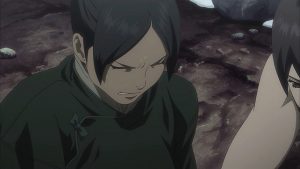 As I look back over the commentary on the show from back in 2007, a recurring theme presents itself. On the whole the response was overwhelmingly positive from those that found the series and followed it. But where there was criticism, and there often was, it almost always followed the same pattern. Viewers expected the series to do something conventional, it didn’t, they complained. It loops over and over, right up until the very end, and certainly where this penultimate episode is concerned.
As I look back over the commentary on the show from back in 2007, a recurring theme presents itself. On the whole the response was overwhelmingly positive from those that found the series and followed it. But where there was criticism, and there often was, it almost always followed the same pattern. Viewers expected the series to do something conventional, it didn’t, they complained. It loops over and over, right up until the very end, and certainly where this penultimate episode is concerned.
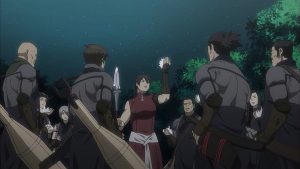 Putting that in context – this was an era when anime in general challenged audiences far more than it does today, and this was presumably a subset of anime viewers more eager than normal to be challenged – highlights just how unconventional Seirei no Moribito really was. And one can only imagine just was a lead balloon the show would be if it were released today (which it never would be, of course). It’s a reminder that while we’ll still get the odd anime masterpiece even now, in the height of the creatively stifling production committee era, it won’t be quite the masterpiece a show like Moribito was. Not that there are many of those in the first place…
Putting that in context – this was an era when anime in general challenged audiences far more than it does today, and this was presumably a subset of anime viewers more eager than normal to be challenged – highlights just how unconventional Seirei no Moribito really was. And one can only imagine just was a lead balloon the show would be if it were released today (which it never would be, of course). It’s a reminder that while we’ll still get the odd anime masterpiece even now, in the height of the creatively stifling production committee era, it won’t be quite the masterpiece a show like Moribito was. Not that there are many of those in the first place…
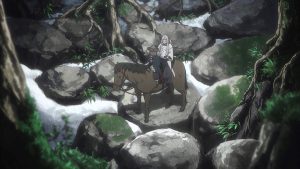 Seirei no Moribito followed the structure almost all great series do – it resolved the main plot in the penultimate episode, leaving the finale as a denouement – an opportunity to properly resolve the characters arcs and say goodbye (more literally in this case than most). A lot of folks back then were upset that the plot didn’t have a classic resolution. That is to say Balsa, being the hero, should have done something heroic to save the day. With all due respect, I think this criticism – as most criticism of this series does for this thoroughly biased observer – completely misses the point.
Seirei no Moribito followed the structure almost all great series do – it resolved the main plot in the penultimate episode, leaving the finale as a denouement – an opportunity to properly resolve the characters arcs and say goodbye (more literally in this case than most). A lot of folks back then were upset that the plot didn’t have a classic resolution. That is to say Balsa, being the hero, should have done something heroic to save the day. With all due respect, I think this criticism – as most criticism of this series does for this thoroughly biased observer – completely misses the point.
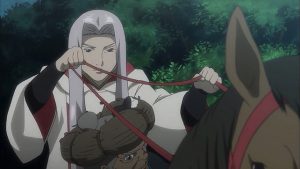 The major threads behind both Uehashi and Kamiyama’s version of the story are tied together exquisitely in this plot resolution. Uehashi is very much concerned with folklore – the way the wisdom of the common people is more profound and enduring than the myths and lies of the powerful. The key to resolving this crisis came from children’s songs, ancient fire festivals and the Yakue tradition of verbal storytelling. Right down to Chagum and Sagum’s nahji being the one to carry the egg to the sea, there’s a symmetry and poetry to this that’s quite breathtaking.
The major threads behind both Uehashi and Kamiyama’s version of the story are tied together exquisitely in this plot resolution. Uehashi is very much concerned with folklore – the way the wisdom of the common people is more profound and enduring than the myths and lies of the powerful. The key to resolving this crisis came from children’s songs, ancient fire festivals and the Yakue tradition of verbal storytelling. Right down to Chagum and Sagum’s nahji being the one to carry the egg to the sea, there’s a symmetry and poetry to this that’s quite breathtaking.
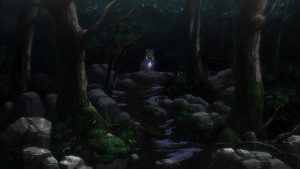 Kamiyama – more than Uehashi – is concerned with the bonds between characters. The heroism here is not Balsa doing something GAR with a spear. It’s Chagum resolving to do everything he can to see the Seirei be born and survive. It’s Chagum believing to the end that Balsa would return to him, and Balsa keeping her promise to do so. It’s Tanda fighting through injury and physical limitations and surpassing his master, guiding the whole operation and eventually acting to save the sacred spirit without Chagum having to die. The heroism is these three people being more concerned about others than themselves, having faith in each other, and rewarding each other’s faith with devotion.
Kamiyama – more than Uehashi – is concerned with the bonds between characters. The heroism here is not Balsa doing something GAR with a spear. It’s Chagum resolving to do everything he can to see the Seirei be born and survive. It’s Chagum believing to the end that Balsa would return to him, and Balsa keeping her promise to do so. It’s Tanda fighting through injury and physical limitations and surpassing his master, guiding the whole operation and eventually acting to save the sacred spirit without Chagum having to die. The heroism is these three people being more concerned about others than themselves, having faith in each other, and rewarding each other’s faith with devotion.
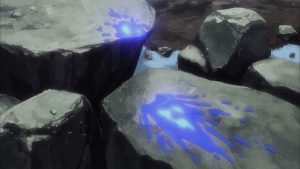 That plot resolution is about as unglamorous as one could hope for. The spectacle of a 12 year-old boy for all practical purposes going through labor and childbirth is not a comfortable one for Western audiences to be sure, but it serves both Uehashi and Kamiyama’s vision. And certainly, Moribito is a series where gender roles are often meaningless. It also must be said that Adachi Naoto, the 13 year-old actor playing Chagum, delivers (no pun intended) incredibly during this entire extended sequence. He’s marvelous throughout the entire series as indeed is the entire main cast, but the depth of emotion and primal disquiet he’s able to project in this episode is almost unbelievable for a child his age.
That plot resolution is about as unglamorous as one could hope for. The spectacle of a 12 year-old boy for all practical purposes going through labor and childbirth is not a comfortable one for Western audiences to be sure, but it serves both Uehashi and Kamiyama’s vision. And certainly, Moribito is a series where gender roles are often meaningless. It also must be said that Adachi Naoto, the 13 year-old actor playing Chagum, delivers (no pun intended) incredibly during this entire extended sequence. He’s marvelous throughout the entire series as indeed is the entire main cast, but the depth of emotion and primal disquiet he’s able to project in this episode is almost unbelievable for a child his age.
 I haven’t used any of the notes I took as I was re-watching this episode, but that’s fine. As I noted I probably don’t have much new to say about Seirei no Moribito at this point, and a conventional episode review would serve little and fail to do the work justice. There’s only the finale to go now, and I won’t lie – it’s going to take a lot of mustering of will to allow me to watch it again, much less write about it. That kind of emotional battering is never easy to knowingly subject oneself to, and those final 22 minutes never get any easier to watch no matter how many years pass.
I haven’t used any of the notes I took as I was re-watching this episode, but that’s fine. As I noted I probably don’t have much new to say about Seirei no Moribito at this point, and a conventional episode review would serve little and fail to do the work justice. There’s only the finale to go now, and I won’t lie – it’s going to take a lot of mustering of will to allow me to watch it again, much less write about it. That kind of emotional battering is never easy to knowingly subject oneself to, and those final 22 minutes never get any easier to watch no matter how many years pass.


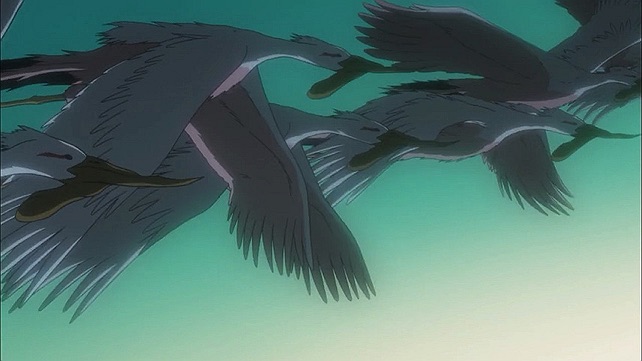
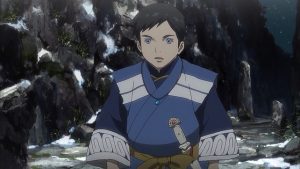
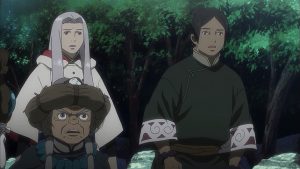
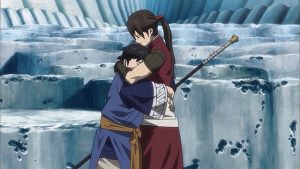
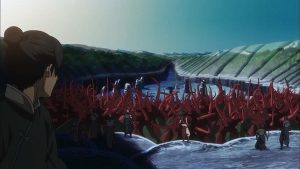
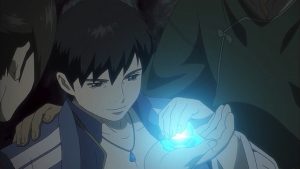
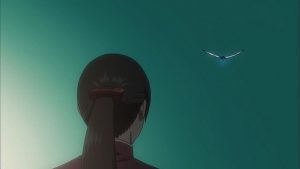
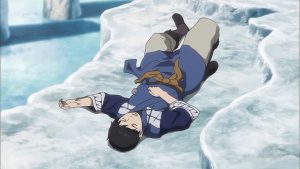

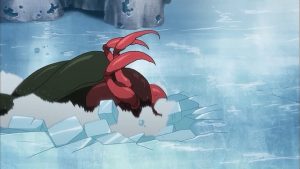
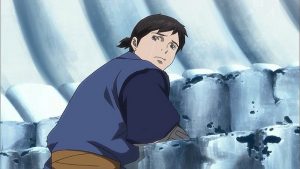
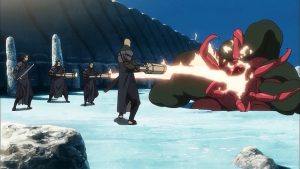
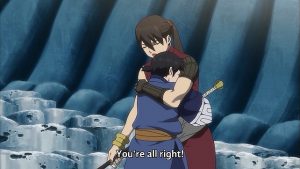
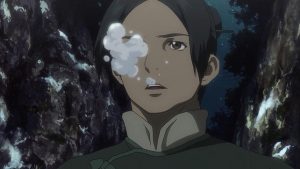
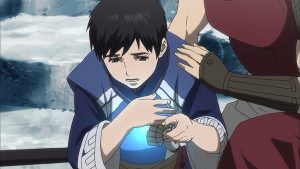
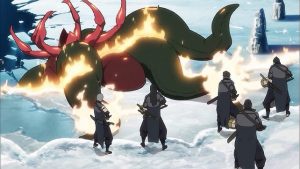
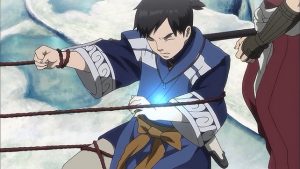
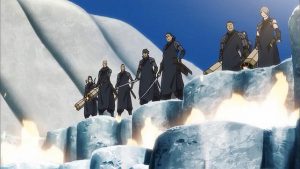

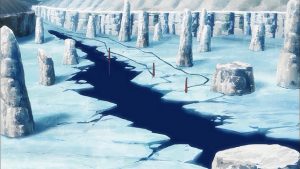
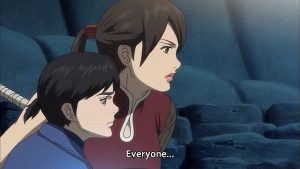
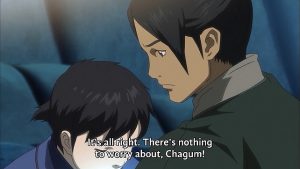

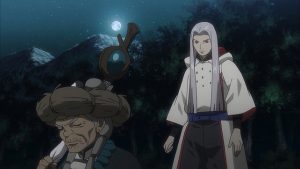

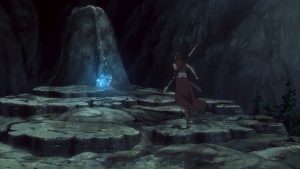
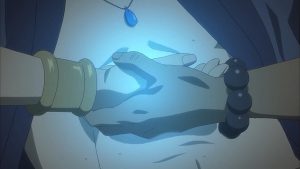
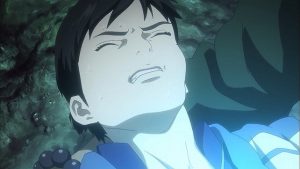
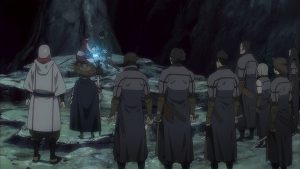
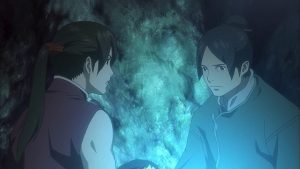
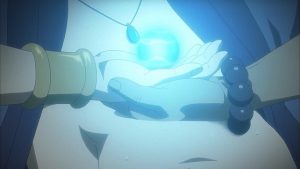
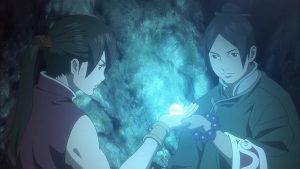
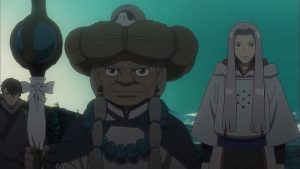
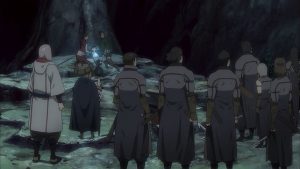
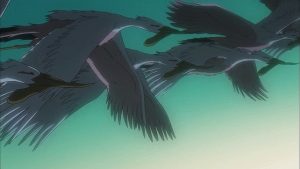

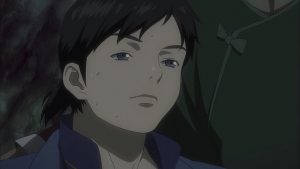
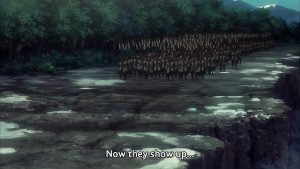
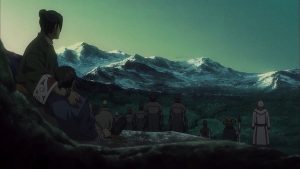
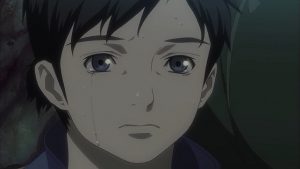
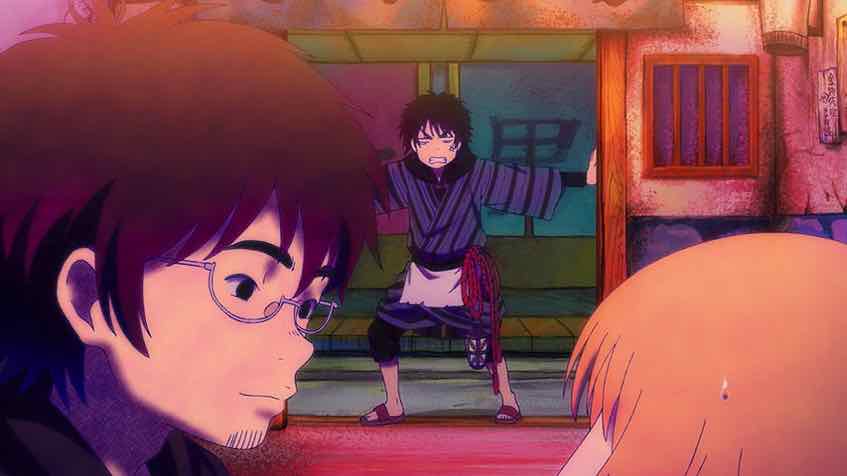
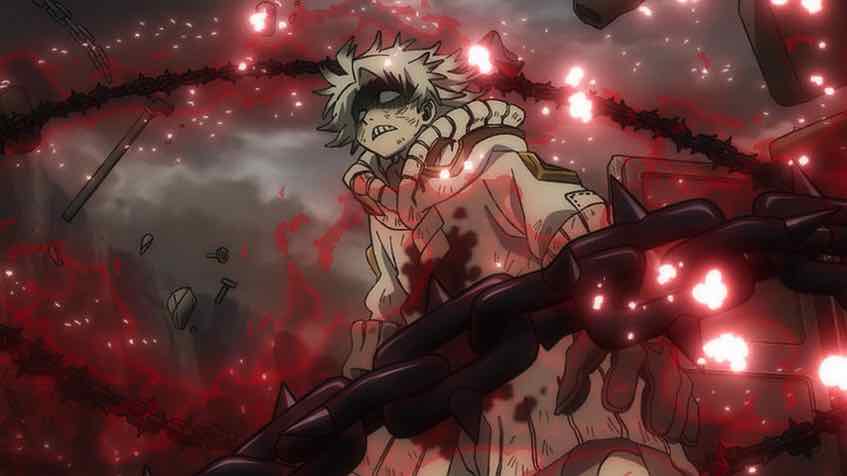
Elia Notari
September 6, 2020 at 11:15 pm“Adachi Naoto delivers incredibly during this entire sequence”… Yeah, speaking of which, what the hell happened to him?
Behind the Voice Actors lists the movie Summer Wars (2009) as his last role, you got any info Enzo?
Guardian Enzo
September 6, 2020 at 11:36 pmNot specifically, but it’s not at all uncommon for child actors and voice actors to leave the business when they approach adulthood. For every Irino Miyu and Aoi Yuuki there are several who don’t stay with it, whether by choice or not. The fact is that most producers won’t cast children for children’s roles because it increases production costs, so someone like Adachi-kun may simply have not gotten any roles and by the time he was legally an adult, decided to pursue other paths.
elianthos
September 7, 2020 at 7:39 am*dabs tear* just looking at the screenshots made me emotional all over again :,>
Guardian Enzo
September 7, 2020 at 9:49 amTry watching it!
I don’t know if I can get through #26, honestly. It just hurts a lot.
elianthos
September 8, 2020 at 6:42 amRe-watching it you mean? ^_^ I did my 4th rewatch last Fall. I tend to space them a bit more apart.
Good luck for the epilogue. And remember good boys do cry <3
Guardian Enzo
September 8, 2020 at 9:46 amI’ve re-watched it multiple times of course, but every time it gets harder to watch the finale. And I’ve never watched it with the intent to write about it episodically.